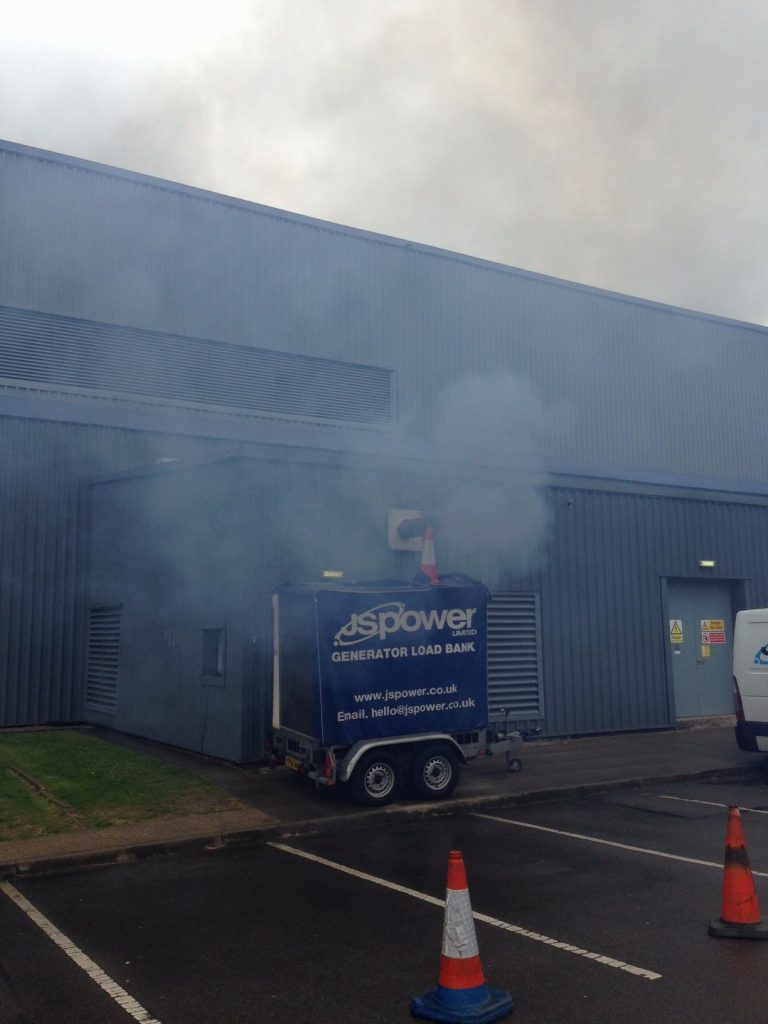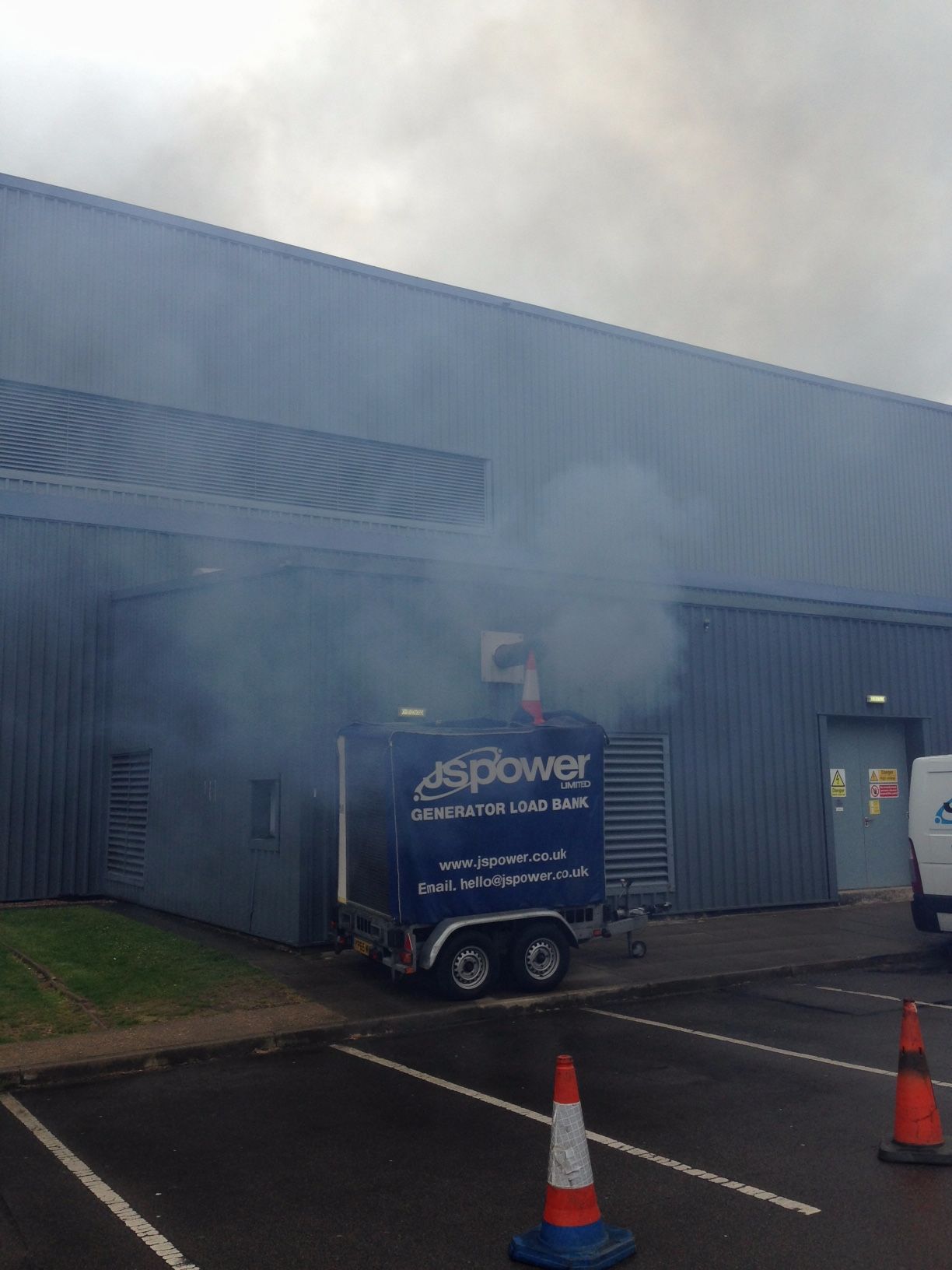Address Diesel Generator Smoke and Prolong Your Generator’s Life
Diesel smoke is an engine symptom which indicates that an engine is not running well, and should be taken as a warning that there may be a problem that could potentially shorten the engine life or increase operating costs unless prompt remedial action is taken.
The smoke may be caused by a simple problem, poor combustion efficiency or from excessive idling, stop start operation or short run times. At the other end of the scale, it may be your last chance to act, before a catastrophic engine failure occurs (e.g. piston seizure, valve or turbocharger failure). Under most operating conditions, a diesel engine in good condition should produce no visible smoke from the exhaust.
A short puff of smoke when an engine is suddenly loaded may be acceptable to older technology diesel engine. This is due to the lag before the turbocharger speed and air flow is able to match the volume of diesel injected into the cylinders. In modern diesel engines, no smoke at all should be evident.
Types Of Generator Smoke
BLACK SMOKE is the most common smoke emitted from diesel engines. It indicates poor and incomplete combustion of the diesel fuel. Black smoke is high in carbon or soot, which is an undesirable product of diesel combustion.
There are many causes, including:
• Incorrect timing
• Injectors sticking open
• Over-fuelling
• Faulty turbocharger
• Incorrect valve clearances
• Incorrect air/fuel ratio
• Low cylinder compression (e.g. sticking piston rings or worn components)
• Dirty air cleaner
• Restricted induction system (system too small or kinked inlet piping)
• Dirty intake manifolds
• Poor quality fuel
• Excessive carbon build up in combustion and exhaust spaces
• Cool operating temperatures
Obviously, worn or damaged components must be replaced, and the earlier you identify and fix the problem, the less damage will be done. It is important to keep on top of engine tune issues, including valve adjustments and, regular servicing of air, fuel and oil filters.
BLUE SMOKE is an indication of engine oil being burnt.
This oil can enter the combustion chamber for several reasons:
• Worn valve guides or seals
• Wear in power assemblies (i.e. cylinders, piston rings, ring grooves)
• Cylinder glaze
• Piston rings sticking
• Faulty turbocharger seals
• Incorrect grade of oil
• Fuel dilution in the oil
At cold start, blue smoke is often evident, and can reflect reduced oil control due to fouling deposits around piston rings or cylinders. Blue smoke should not be evident at any time, but it is worth noting, that engines with good compression can burn quite a lot of oil without evidence of blue smoke. Good compression allows oil to burn cleanly, as part of the fuel.
WHITE SMOKE occurs when raw diesel comes through the exhaust completely intact and unburned.
Some causes of this include:
• Faulty or damaged injectors
• Incorrect injection timing or worn timing gear
• Low cylinder compression (possibly caused by leaking or broken valves, piston ring sticking, cylinder and/or ring wear, or glazed cylinder bores
If white smoke occurs at cold start, and then disappears as the engine warms up, the most common causes of this are fouling deposits around piston rings and/or cylinder glazing.
Water entering combustion spaces will also create white smoke.
Faulty head gaskets and cracked cylinder heads or blocks are a common cause of water entry and are often to blame. Unfortunately, expensive mechanical repair is the only proper solution here.
BLOWBY SMOKE This is the emission of crankcase pressure, fumes and smoke out of the crankcase ventilation system, and is generally regarded as a clear indication of an urgently needed and expensive engine rebuild.
It is evident as pressure coming out the crankcase ventilation tube, valve cover breather or dipstick tube. Engine oil leaks can also result from excessive cylinder blowby, as the excess pressure finds the weakest point.
Some causes include:
• Sticking piston rings
• Worn cylinders
• Worn or broken piston rings
• Cracked pistons
Explore our all Maintenance Services here.
If you would like free advice on your generator please contact our team either by email or telephone on the information shown below and they will be happy to help / advise.
CONTACT
Telephone: 01482 222 565 | Email: [email protected]


